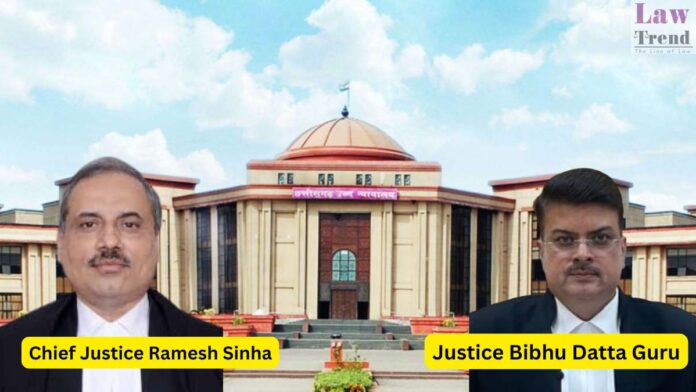The High Court of Chhattisgarh has dismissed a writ petition filed by Laboratory Technicians seeking a direction to the State Government to amend service rules and create promotional avenues. The Division Bench, comprising Chief Justice Ramesh Sinha and Justice Bibhu Datta Guru, held that the creation of posts, structuring of cadres, and amendment of recruitment
To Read More Please Subscribe to VIP Membership for Unlimited Access to All the Articles, Download Available Copies of Judgments/Order, Acess to Central/State Bare Acts, Advertisement Free Content, Access to More than 4000 Legal Drafts( Readymade Editable Formats of Suits, Petitions, Writs, Legal Notices, Divorce Petitions, 138 Notices, Bail Applications etc.) in Hindi and English.




